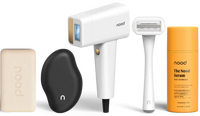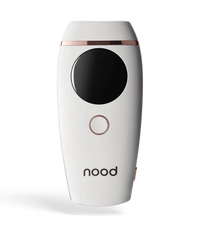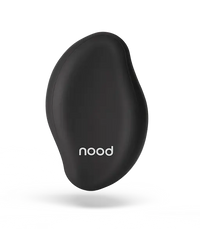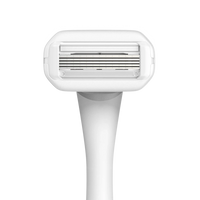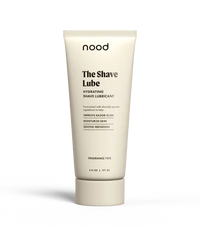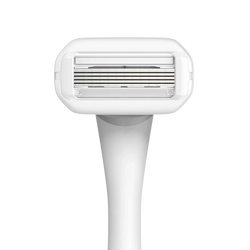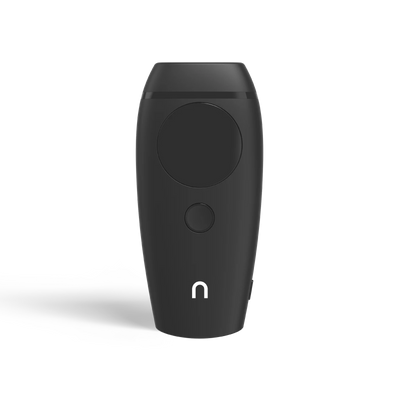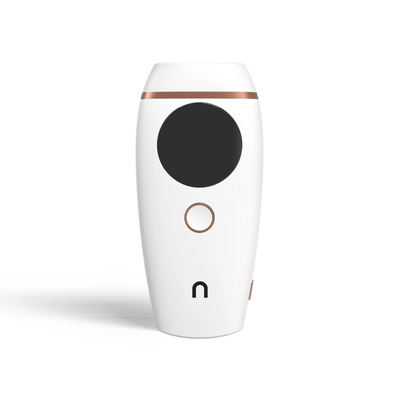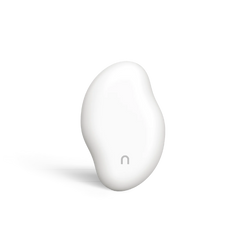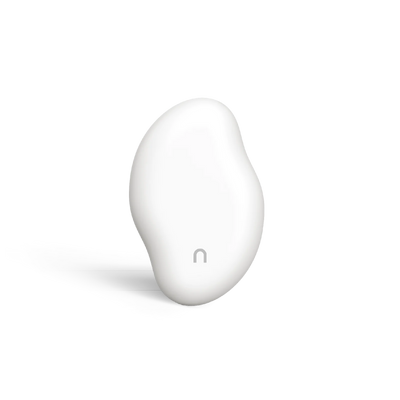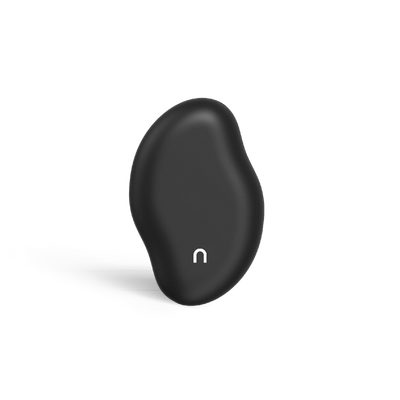
PCOS Hair Removal: Laser, Electrolysis, & Considerations
Most of the side effects of PCOS are uncomfortable or downright harmful. While it’s not technically as serious, excess body/facial hair might just win the prize for the most upsetting.
We probably don’t have to tell you that forgetting to take care of your mustache before a meeting can be embarrassing — whether or not anyone else notices.
Here’s the good news: Laser hair removal (including IPL) and electrolysis are the two methods that work to be permanently hair-free with PCOS. However, you’ll need to actively manage your hormones and insulin levels to see the best results.
Let’s talk about this annoying hair growth and how to get rid of it.
Table of Contents
Why PCOS Hair Growth Is Such a B*tch
Electrolysis Hair Removal for PCOS
Other Hair Removal Methods for PCOS
Why PCOS Hair Growth Is Such a B*tch
Your body is covered in vellus hairs — the tiny, barely-pigmented “peach fuzz” hairs. The hairs on your head, pubic area, and underarms are terminal hairs.
For men, terminal hairs also grow on the face (and chest, arms, and backs — name a body part, and a man probably grows terminal hairs on it). This is because men typically have much higher androgen levels.
When PCOS causes excess androgen production, hormone-sensitive vellus hair follicles start producing terminal hairs in women. That’s why many women with PCOS develop male-pattern hair growth.
Women may experience excessive hair growth in these areas:
- Upper lip
- Chin/jawline
- Neck
- Chest/breasts
- Tummy
- Inner thighs
- Lower back
- Shoulders
For many women, excess facial hair is the most distressing symptom of PCOS. Management can seem daunting. Plucking is uncomfortable and time-consuming. Shaving poses risks of razor burn and stubble — not to mention ingrown hairs.
Depending on the amount of hair and pigmentation, this can be uncomfortable and embarrassing. The good news is that unwanted facial hair — or anywhere hair — is manageable.
Laser Hair Removal for PCOS
Does laser hair removal work for PCOS? Yes, laser hair removal is an excellent option for body hair reduction in women with PCOS. Many women see 30-40% reduction after 6 treatments, with further improvement after more sessions.
Read: It works if you stick to it.
How It Works
Laser hair removal works by targeting the pigment of your hair follicles with heated light energy. This means it works best on the dark hair PCOS patients generally try to reduce.
In this case, “laser hair removal” refers to both traditional (single-beam) laser hair removal (done by a professional) and IPL treatment (which you can do at home).
Why it’s a Great Option for PCOS
- Results last. The lasers damage hair follicles, preventing potential regrowth. While touch-ups are recommended every 12-24 months, it’s very close to permanent.
- You have to shave before laser treatments. Letting hair grow long enough to wax can be embarrassing. With laser hair removal, you can keep the hair as out-of-sight as possible between sessions. In fact, you should shave before every session.
- It’s less painful than other options. Depending on the method, pain levels range from no pain at all to the feeling of being snapped with a rubber band.
- It’s totally safe. If you’re worried about fertility, we’re here to dispel any rumors about safety.
Potential Drawbacks
- It doesn’t work effectively if you’re not currently taking medication to manage your PCOS. You’ll need to manage the underlying hormonal issue with contraceptives and/or insulin control drugs such as metformin for the best results. This applies to both laser treatment and IPL.
- It doesn’t work for all hair and skin combinations. Lighter hair or very dark skin can prevent the laser from “seeing” enough contrast to target the hair follicle. If that describes you, don’t give up! You still have options.
- It takes patience. Permanent hair removal will take anywhere from 6-10 sessions, spaced out over a few months.
- It can be pricey. If you’re getting professional treatment at a dermatologist’s office or seeing an esthetician, the cost can add up quickly. Opting for an at-home IPL device like the Flasher 2.0 can eliminate the cost barrier.
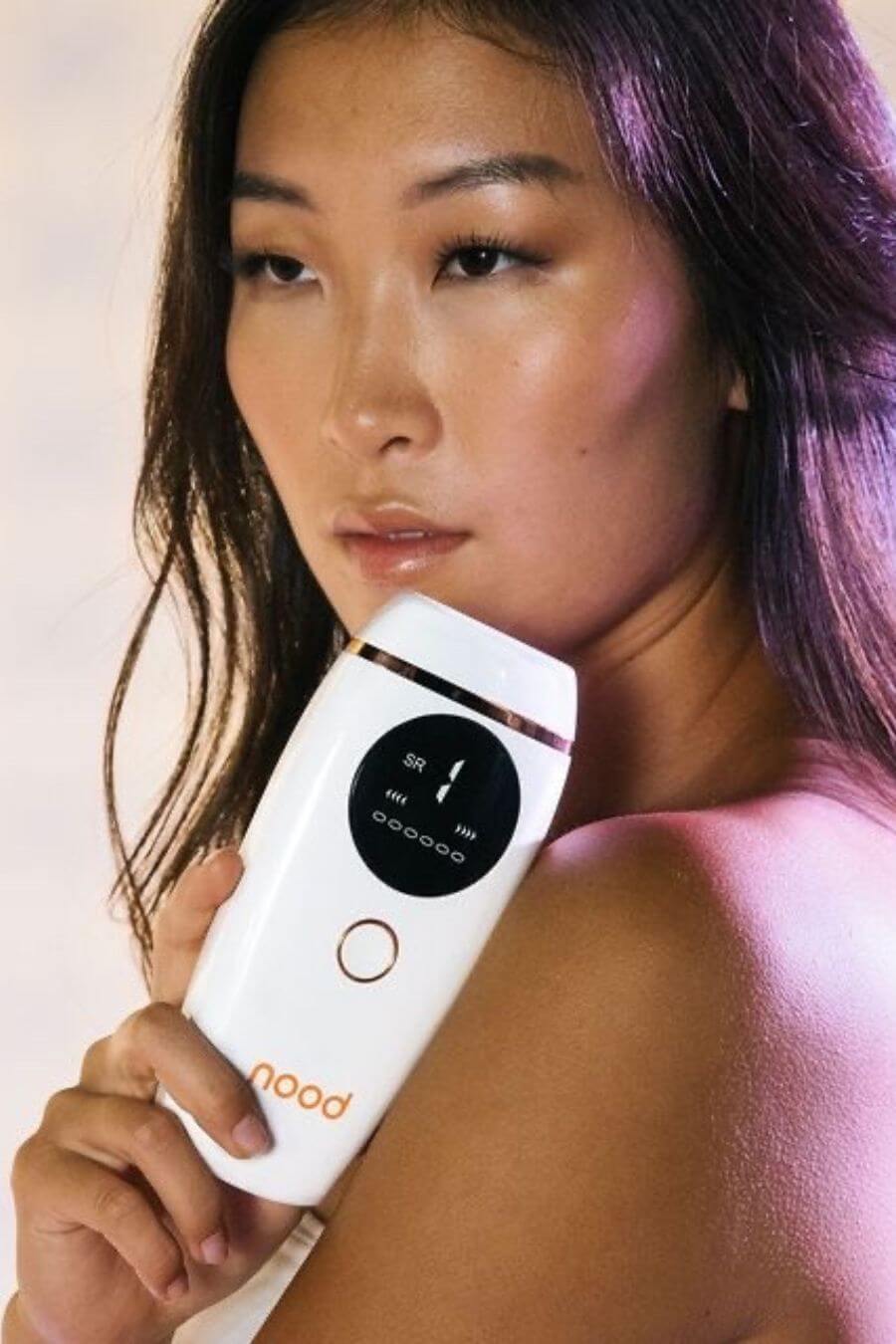
Electrolysis Hair Removal for PCOS
Electrolysis has been doing the heavy lifting in permanent hair removal since 1875. In fact, the FDA still maintains electrolysis is the only truly permanent hair removal method. (We’re working on that.)
How It Works
An electrologist inserts a thin wire into each hair follicle just under the surface of the skin and essentially shocks the follicle.
Why it’s a Great Option for PCOS
- Results are permanent. Like laser treatments, electrolysis permanently destroys the follicle and prevents future regrowth.
- It works for all hair and skin pigments. Because it relies on a human’s eyes rather than a beam of light, electrolysis can target any hair color on any skin tone.
Potential Drawbacks
- It takes a while. Because each follicle is targeted individually, a single session can take hours. You’ll also need to return for multiple sessions.
- It is not cheap. Most electrologists charge by the hour rather than the area of treatment, making sessions cheaper than professional laser treatments. But it takes 10-15 sessions to see permanent results, so it can add up to more in the long run.
- It is painful. Electrolysis is generally considered the most painful hair removal treatment, although some describe it as a tingling sensation.
Other Hair Removal Methods for PCOS
| Expected Maintenance | Average Session Length* | Long-Term Results | Pain Level | Cost | |
| Bleaching | Every week | 10 minutes | No | Low | $5-$15/treatment |
| Depilatory creams | 2 times/week | 5-10 minutes | No | Low | $10-$20/container |
| Waxing | Every 3-6 weeks | 10-30 minutes | No | Moderate | $25-$100/session |
| Tweezing | Daily/weekly | 5-15 minutes | No | Low** | $5-$15 every 3-5 years |
| Shaving | 2 times/week | 15 minutes | No | Low | $10-$15/month (cheaper for men!) |
| Laser hair removal | 6-8 initial sessions** | 15-60 minutes | Yes | Moderate | $50-$900/session |
| Electrolysis | 10-14 total treatments | 15-60 minutes | Yes | High | $75-$200/hour |
| IPL | 4-6 initial sessions** | 15-60 minutes | Yes | Low | As low as $189 (one-time cost) |
*Session length will vary based on the treatment area.
**Pain level of tweezing varies based on treatment area and steadiness of hand.
***Expect maintenance sessions every few months for both IPL and laser hair removal.
Is it better to shave or wax with PCOS? With PCOS, you can shave or wax depending on the short-term results you want. Waxing offers longer-lasting results and prevents stubble, but it also prohibits your ability to use lasers or electrolysis for more permanent results. You might prefer shaving to avoid growing your hair the ¼” required to wax.
A Little Bit About PCOS
Polycystic ovarian syndrome (PCOS) is a common condition affecting roughly 10% of women in the US. It occurs when the ovaries and adrenal glands produce excess androgens, or male hormones. The resulting hormonal imbalance creates a host of complications including:
- Irregular menstrual cycles
- Cysts on the ovaries
- Infertility
- Depression/anxiety
- Obesity
- Diabetes
- High blood pressure
- High cholesterol
- Hirsutism (excess body or facial hair)
While we don’t currently know what causes PCOS, factors like genetics, weight, and insulin resistance are the prime suspects. If you think you may have PCOS, it’s essential to talk to a healthcare provider for a diagnosis.

Treating your PCOS creates the best hair removal results.
For permanent hair removal results, you’ll have to address the underlying hormonal imbalance causing unwanted hair growth. Even laser hair removal will be minimally effective if your PCOS isn’t under control.
Many cases of PCOS can be managed with birth control, metformin, or a combination of these medications. In severe cases, you may need to see an endocrinologist for more aggressive treatment.
How can I stop hair growth on my face? The best way to stop hair growth on your face is to deal with the hormonal imbalance causing the unwanted facial hair growth, then choose a permanent hair reduction method — laser hair removal, electrolysis, or IPL treatment.
Once you have a solid treatment plan and you’ve been managing your other symptoms, you should be able to effectively stop unwanted hair growth.
Because PCOS is generally considered incurable, you may also see recurrent hair growth over time. Talk to your provider about spironolactone to combat new hirsutism (male-pattern hair growth in women).
Go Nood — With No Strings Attached
If you have PCOS and have done everything you can to balance your hormone levels but still have unwanted hair, give Nood a try. We know you’ve probably tried other methods and don’t want to play around, so if you don’t get the results you want after 90 days, we’ll get you a full refund — no questions asked.
Sound too good to be true? Check out these Noodist results.

